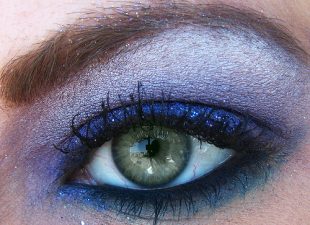 Ever look in the mirror and wonder what exactly was in those products you are slathering on your skin? Image via antkriz
Ever look in the mirror and wonder what exactly was in those products you are slathering on your skin? Image via antkriz
Part of most women’s morning regime involves walking into the bathroom, looking into the vanity mirror and trying to figure out how to minimise her so-called defects and play up her best features. Well, with all the products we use, have you ever really thought to read the ingredients? There are some chemicals in your beauty products that you definitely could do without.
It isn’t an easy job reading the ingredients in the miniscule print at the back of the bottle, but it is a task you should incorporate into your shopping routine. Many products out there try to persuade you that their product is “natural”, “herbal” or “organic” but don’t let this fool you. There is no legal definition for these words, so companies are free to use them randomly.
Toner: Of course there are ingredients in your beauty products which you will recognise but necessarily realise are not healthy for you. For instance did you know that alcohol, which appears in most skin toners, really dries out your skin? Even if you have oily skin, you don’t want to purposely dry out your skin. So the next time you are looking for a toner, try one designed for sensitive skin, since these usually don’t have alcohol.
Smells: Next consider the fragrances. We all know that a rose by any name would smell as sweet, but what if that name was a long complicated chemical concoction as Green Prophet’s EcoMum points out? Some point to cancer and disruption of the immune system. Knowing this, would you really think it smelled as sweet? So here you have the first thing to look out for; any product whose label claims it has beautiful fragrances, you should avoid.
There are many home made skin care options available, some very practical ones, just as much as there are ways to cope with your hair in summer without dousing yourself in multitudes of products. Two women who were concerned about their beauty products, Siobhan O’Conner and Alexandra Spunt, actually wrote a book about their experiences entitled No More Dirty Looks. There they give you tips about products as well as safe, healthy alternatives.
Of course it isn’t easy to completely change around your routine entirely. So try to start with some of the smaller things, like products that you don’t use that often. And next time your run out of a particular product, don’t go running to the store for the same thing, try looking for a safer, healthier option with fewer ingredients.
As food author Michael Pollan says for prepared foods in his book Food Rules: if you can’t pronounce it, don’t eat it. Think the same way for beauty products.
Read more on natural ways to boost your health:
4 Unique Aloe Vera Juice Recipes for Summer and Health
4 Tips for Relieving Migraines Naturally




There is a big movement growing in America focusing on this issue and surprise, surprise: the big cosmetics companies aren’t such big fans of the Safe Cosmetics Act of 2010—legislation introduced yesterday to more strictly regulate their business—or of our new movie. The Personal Care Products Council went so far as to issue a statement calling The Story of Cosmetics a “repugnant and absurd…shockumentary.”
http://storyofstuff.org/cosmetics/
Learn about how major loopholes in U.S. federal law allow the $50 billion beauty industry to put unlimited amounts of chemicals into personal care products with no required testing, no monitoring of health effects and inadequate labeling requirements—making cosmetics among the least-regulated consumer products on the market. Think twice before putting on that lipstick, you might be putting on